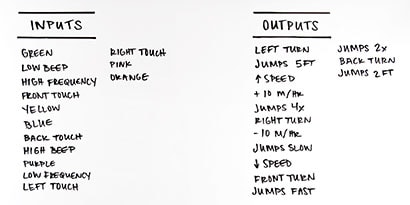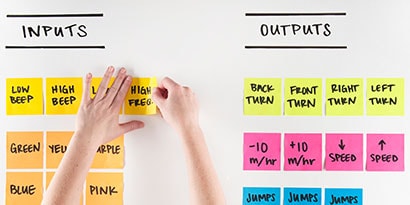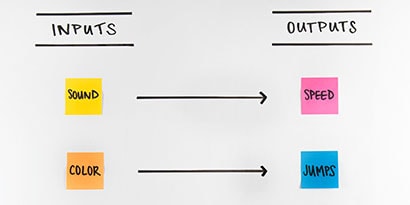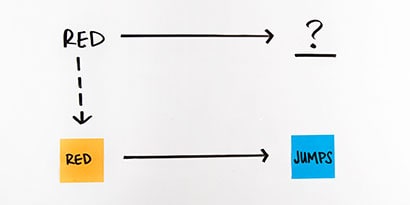
-
SAMPLE LESSON: COLOUR CODING INPUTS AND OUTPUTS TO UNDERSTAND PROCESSES
When you’re working on a difficult engineering project — like designing a robot that can jump, turn and change speed — it’s a good idea to map inputs and outputs. Even if you already know what the inputs and outputs are, organising them into buckets or bins can help you gain a better understanding of what you’re trying to accomplish.
-

Start by writing a list of all known inputs and outputs on a flat surface like Post-it® Dry Erase Surface.

-

Group similar inputs together into bins, using one Post-it® Super Sticky Note colour for each type of input and give it a title. Then do the same for the outputs.

-

Show the relationship between each input bin and its corresponding output bin by drawing an arrow to connect the two. By organising them in this way, you’ll develop a key for clearer understanding of what each input or output in the bin does.

-

Going through this process can help you think about mapping of inputs and outputs in a simpler way. For example, instead of 19 inputs to think about, you now have four tangible buckets or bins that help you remember what will happen with each type of input. This can help provide an at-a-glance understanding of the inputs and outputs as a whole and possibly make it easier to see ways you can improve your project.



